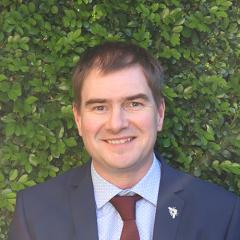The National Wastewater Drug Monitoring Program (NWDMP) has been reporting on selected substances of concern in most of the populated regions of Australia since August 2016. Wastewater analysis is a technique for delivering population-scale estimates of drug consumption. Wastewater treatment plants (WWTPs) located across capital cities and regional Australia, covering all states and territories, have been invited to participate in the program. More than fifty wastewater treatment sites across Australia are sampled every four months, including sites in state or territory capitals and regional areas, and every two months in capital city sites. The aim is to acquire data on the population-scale use of substances of concern that cause potential harm, either through addiction, health risks, or criminal and anti-social behaviour. The intention is to establish baseline data of substance use across Australia and assess temporal changes over the program. Substances of concern include nicotine from tobacco, ethanol from alcohol intake, pharmaceutical opioids with abuse potential; fentanyl and oxycodone, illicit substances such as cannabis, methylamphetamine (ice), MDMDA, cocaine and MDA, heroin, as well as several new psychoactive substances (NPS). The report presents patterns of substance use across Australia, showing differences in levels between capital cities and regional centres within states and territories and nationally. Trends in estimated drug consumption are being established over the life of the program, which will deliver these results in three publicly released reports per year. The collective national data are placed in an international context by comparing findings with European and other studies that conducted similar wastewater analyses.
Outcomes
This project has enabled an estimate of the size of the illicit drug market for Australian states and territories. This has enabled both the state and federal law enforcement agencies to better control and monitor illegal substance use and enables the impact of policing efforts to be estimated for the first time. For example, it can be determined whether there has been a decrease in consumption of illicit drugs following large seizures for state and federal policing agencies, in addition to the proportion of the market seized by police. Furthermore, the results regarding illicit drug use during lockdowns in 2020 were fast-tracked due to this project and were reported to the Prime Minister and Cabinet to assist with policy and decision making. The NWDMP sample set facilitates the monitoring of government substance-use interventions aimed at harm reduction, for example, we have published on the wastewater trends before and after the introduction of a minimum unit price in alcohol in the Northern Territory, compared to other states, as well as the national rescheduling of codeine to prescription only. Finally, this project facilitates the collection of a large volume of samples, which can enable sample analyses of other drugs or chemicals of interest and has resulted in other publications beyond the scope of the project.
Research Outputs
Conference Presentations
Tscharke, B. Gerber, C., O’Brien, J., Grant, S., Mueller, J., Thomas, k., Bade, R., White, J. Spatial differences in illicit drug use in Australia’s capital and regional areas; initial results from the National Wastewater Drug Monitoring Program, Testing the Waters 3, Lisbon, Portugal, 26-27 October 2017.
Tscharke, B. A wastewater-based evaluation of the effectiveness of codeine control measure in Australia, Testing the Waters 5, Brisbane, Australia, 28 September – 1 October 2021.
Research Impact
Public reports have been downloaded from multiple countries, with the media coverage reaching millions of people. For example, Report 12 (https://www.acic.gov.au/publications/national-wastewater-drug-monitoring-program-reports/report-12-national-wastewater-drug-monitoring-program) media coverage reached 3.8 million people, with 226 mentions online, 41 radio interviews, several news articles, and national TV video news. These reports are also used by a large number of partner agencies in policing and health to help policy and decision making for the Australian population and environmental health.
Awards and Prizes
- 2021 Testing the Waters 5 conference, Overall Best Early or Mid-Career Academic Presentation winner Dr Ben Tscharke, for Impact of codeine rescheduling in Australia.





